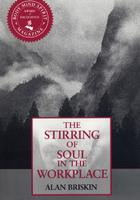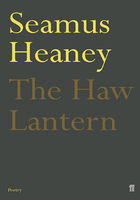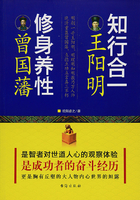The train had started punctually. Among the passengers were a number of officers, Government officials, and opium and indigo merchants, whose business called them to the eastern coast. Passepartout rode in the same carriage with his master, and a third passenger occupied a seat opposite to them. This was Sir Francis Cromarty, one of Mr Fogg's whist partners on the 'Mongolia', now on his way to join his corps at Benares. Sir Francis was a tall, fair man of fifty, who had greatly distinguished himself in the last Sepoy revolt. He made India his homer only paying brief visits to England at rare intervals; and war almost as familiar as a native with the customs, history and character of India and its people. But Phileas Fogg, who was not travelling, but only describing a circumference, took no pains to inquire into these subjects; he was a solid body, traversing an orbit around the terrestrial globe, according to the laws of rational mechanics. He was at this moment calculating in his mind the number of hours spent since his departure from London, and, had it been in his nature to make a useless demonstration, would have rubbed his hands for satisfaction. Sir Francis Cromarty had observed the oddity of his travelling companion - although the only opportunity he had for studying him had been while he was dealing the cards, and between two rubbers - and questioned himself whether a human heart really beat beneath this cold exterior, and whether Phileas Fogg had any sense of the beauties of nature. The brigadier-general was free to mentally confess, that, of all the eccentric persons he had ever met, none was comparable to this product of the exact sciences.
Phileas Fogg had not concealed from Sir Francis his design of going round the world, nor the circumstances under which he set out; and the general only saw in the wager a useless eccentricity and a lack of sound common sense. In the way this strange gentleman was going on, he would leave the world without having done any good to himself or anybody else.
An hour after leaving Bombay the train had passed the viaducts and the island Salcette, and had got into the open country. At Callyan they reached the junction of the branch line which descends towards southeastern India by Kandallah and Pounah; and, passing Pauwell, they entered the defiles of the mountains, with their basalt bases, and their summits crowned with thick and verdant forests. Phileas Fogg and Sir Francis Cromarty exchanged a few words from time to time, and now Sir Francis, reviving the conversation, observed, 'Some years ago, Mr Fogg, you would have met with a delay at this point which would probably have lost you your wager.'
'How so, Sir Francis?'
'Because the railway stopped at the base of these mountains, which the passengers were obliged to cross in palanquins or on ponies to Kandallah, on the other side.'
'Such a delay would not have deranged my plans in the least,' said Mr Fogg. 'I have constantly foreseen the likelihood of certain obstacles.'
'But, Mr Fogg,' pursued Sir Francis, 'you run the risk of having some difficulty about this worthy fellow's adventure at the pagoda.' Passepartout, his feet comfortably wrapped in his travelling-blanket, was sound asleep, and did not dream that anybody was talking about him. The Government is very severe upon that kind of offence. It takes particular care that the religious customs of the Indians should be respected, and if your servant were caught--'
'Very well, Sir Francis,' replied Mr Fogg; 'if he had been caught he would have been condemned and punished, and then would have quietly returned to Europe. I don't see how this affair could have delayed his master.'
The conversation fell again. During the night the train left the mountains behind, and passed Nassik, and the next day proceeded over the flat, well-cultivated country of the khandeish, with its straggling villages, above which rose the minarets of the pagodas. This fertile territory is watered by numerous small rivers and limpid streams, mostly tributaries of the Godavery.
Passepartout, on waking and looking out, could not realize that he was actually crossing India in a railway train. The locomotive, guided by an English engineer and fed with English coal, threw out its smoke upon cotton, coffee, nutmeg, clove and pepper plantations, while the steam curled in spirals around groups of palm-trees, in the midst of which were seen picturesque bungalows, viharis (a sort of abandoned monasteries), and marvellous temples enriched by the exhaustless ornamentation of Indian architecture. Then they came upon vast tracts extending to the horizon, with jungles inhabited by snakes and tigers, which fled at the noise of the train; succeeded by forests penetrated by the railway, and still haunted by elephants which, with pensive eyes, gazed at the train as it passed. The travellers crossed, beyond Malligaum, the fatal country so often stained with blood by the sectaries of the goddess Kali. Not far off rose Ellora, with its graceful pagodas, and the famous Aurungabad, capital of the ferocious Aureng-Zeb, now the chief town of one of the detached provinces of the kingdom of the Nizam. It was thereabouts that Feringhea, the Thuggee chief, king of the stranglers, held his sway. These ruffians, united by a secret bond, strangled victims of every age in honour of the goddess Death, without ever shedding blood; there was a period when this part of the country could scarcely be travelled over without corpses being found in every direction. The English Government has succeeded in greatly diminishing these murders, though the Thuggees still exist, and pursue the exercise of their horrible rites.
At half-past twelve the train stopped at Burhampoor, where Passepartout was able to purchase some Indian slippers, ornamented with false pearls, in which, with evident vanity, he proceeded to incase his feet. The travellers made a hasty breakfast and started off for Assurghur, after skirting for a little the banks of the small river Tapty, which empties into the Gulf of Cambray, near Surat.
Passepartout was now plunged into absorbing reverie. Up to his arrival at Bombay, he had entertained hopes that their journey would end there; but now that they were plainly whirling across India at full speed, a sudden change had come over the spirit of his dreams. His old vagabond nature returned to him; the fantastic ideas of his youth once more took possession of him. He carne to regard his master's project as intended in good earnest, believed in the reality of the bet, and therefore in the tour of the worlds and the necessity of making it without fail within the designated period. Already he began to worry about possible delays, and accidents which might happen on the way. He recognized himself as being personally interested in the wager, and trembled at the thought that he might have been the means of losing it by his unpardonable folly of the night before. Being much less cool-headed than Mr Fogg, he was much more restless, counting and recounting the days passed over, uttering maledictions when the train stopped, and accusing it of sluggishness, and mentally blaming Mr Fogg for not having bribed the engineer. The worthy fellow was ignorant that, while it was possible by such means to hasten the rate of a steamer, it could not be done on the railway.
The train entered the defiles of the Sutpour Mountains, which separate the Khandeish from Bundelcund, towards evening. The next day Sir Francis Cromarty asked Passepartout what time it was; to which, on consulting his watch, he replied that it was three in the morning. This famous timepiece, always regulated on the Greenwich meridian, which was now some seventy-seven degrees westward, was at least four hours slow. Sir Francis corrected Passepartout's time, whereupon the latter made the same remark that he had done to Fix; and upon the general insisting that the watch should be regulated in each new meridian, since he was constantly going east-ward, that is in the face of the sun, and therefore the days were shorter by four minutes for each degree gone over, Passepartout obstinately refused to alter his watch, which he kept at London time. It was an innocent delusion which could harm no one.
The train stopped, at eight o'clock, in the midst of a glade some fifteen miles beyond Rothal, where there were several bungalows and workmen's cabins.
The conductor, passing along the carriages, shouted, 'Passengers will get out here!'
Phileas Fogg looked at Sir Francis Cromarty for an explanation; but the general could not tell what meant a halt in the midst of this forest of dates and acacias.
Passepartout, not less surprised, rushed out and speedily returned, crying: 'Monsieur, no more railway!'
'What do you mean?' asked Sir Francis.
'I mean to say that the train isn't going on.'
The general at once stepped out, while Phileas Fogg calmly followed him, and they proceeded together to the conductor.
'Where are we?' asked Sir Francis.
'At the hamlet of Kholby.'
'Do we stop here?'
'Certainly. The railway isn't finished.'
'What! not finished?'
'No. There's still a matter of fifty miles to be laid from here to Allahabad, where the line begins again.'
'But the papers announced the opening of the railway throughout.'
'What would you have, officer? The papers were mistaken.'
'Yet you sell tickets from Bombay to Calcutta,' retorted Sir Francis, who was growing warm.
'No doubt,' replied the conductor; 'but the passengers know that they must provide means of transportation for themselves from Kholby to Allahabad.'
Sir Francis was furious. Passepartout would willingly have knocked the conductor down, and did not dare to look at his master.
'Sir Francis,' said Mr Fogg quietly, 'we will, if you please, look about for some means of conveyance to Allahabad.'
'Mr Fogg, this is a delay greatly to your disadvantage.'
'No, Sir Francis; it was foreseen.'
'What! You knew that the way--'
'Not at all; but I knew that some obstacle or other would sooner or later arise on my route. Nothing, therefore, is lost. I have two days, which I have already gained, to sacrifice. A steamer leaves Calcutta for Hong Kong at noon, on the 25th. This is the 22nd, and we shall reach Calcutta in time.'
There was nothing to say to so confident a response.
It was but too true that the railway came to a termination at this point. The papers were like some watches, which have a way of getting too fast, and had been premature in their announcement of the completion of the line. The greater part of the travellers were aware of this interruption, and leaving the train, they began to engage such vehicles as the village could provide - four-wheeled palkigharis, waggons drawn by zebus, carriages that looked like perambulating pagodas, palanquins, ponies and what not.
Mr Fogg and Sir Francis Cromarty, after searching the village from end to end, came back without having found anything.
'I shall go afoot,' said Phileas Fogg.
Passepartout, who had now rejoined his master, made a wry grimace, as he thought of his magnificent, but too frail Indian shoes. Happily he too had been looking about him, and, after a moment's hesitation, said, 'Monsieur, I think I have found a means of conveyance.'
'What?'
'An elephant! An elephant that belongs to an Indian who lives but a hundred steps from here.'
'Let's go and see the elephant,' replied Mr Fogg.
They soon reached a small hut, near which, enclosed within some high Palings, was the animal in question. An Indian came out of the hut, and, at their request, conducted them within the enclosure. The elephant, which its owner had reared, not for a beast of burden, but for warlike purposes, was hall domesticated. The Indian had begun already, by often irritating him, and feeding him every three months on sugar and butter, to impart to him a ferocity not in his nature, this method being often employed by those who train the Indian elephants for battle. Happily, how ever, for Mr Fogg, the animal's instruction in this direction had not gone far, and the elephant still preserved his natural gentleness. Kiouni - this was the name of the beast - could doubtless travel rapidly for a long time, and, in default of any other means of Conveyance, Mr Fogg resolved to hire him. But elephants are far from cheap in India, where they are becoming scarce; the males, which alone are suitable for circus shows, are much sought, especially as but few of them are domesticated. When, therefore, Mr Fogg proposed to the Indian to hire Kiouni, he refused point-blank. Mr Fogg persisted, offering the excessive sum of ten pounds an hour for the loan of the beast to Allahabad. Refused. Twenty pounds? Refused also. Forty pounds? Still refused. Passepartout jumped at each advance; but the Indian declined to be tempted. Yet the offer was an alluring one, for, supposing it took the elephant fifteen hours to reach Allahabad, his owner would receive no less than six hundred pounds sterling.
Phileas Fogg, without getting in the least flurried, then proposed to purchase the animal outright, and at first offered a thousand pounds for him. The Indian, perhaps thinking he was going to make a great bargain, still refused.
Sir Francis Cromarty took Mr Fogg aside, and begged him to reflect before he went any further; to which that gentleman replied that he was not in the habit of acting rashly, that a bet of twenty thousand pounds was at stake, that the elephant was absolutely necessary to him, and that he would secure him if he had to pay twenty times his value. Returning to the Indian, whose small, sharp eyes, glistening with avarice, betrayed that with him it was only a question of how great a price he could obtain, Mr Fogg offered first twelve hundred, then fifteen hundred, eighteen hundred, two thousand pounds. Passepartout, usually so rubicund, was fairly white with suspense.
At two thousand pounds the Indian yielded.
'What a price, good heaven!' cried Passepartout, 'for an elephant!'
It only remained now to find a guide, which was comparatively easy. A young Parsee, with an intelligent face, offered his services, which Mr Fogg accepted, promising so generous a reward as to materially stimulate his zeal. The elephant was led out and equipped. The Parsee, who was an accomplished elephant driver, covered his back with a sort of saddle-cloth, and attached to each of his flanks some curiously uncomfortable howdahs.
Phileas Fogg paid the Indian with some bank-notes which he extracted from the famous carpet-bag, a proceeding that seemed to deprive poor Passepartout of his vitals. Then he offered to carry Sir Francis to Allahabad, which the brigadier gratefully accepted, as one traveller the more would not be likely to fatigue the gigantic beast. Provisions were purchased at Kholby, and while Sir Francis and Mr Fogg took the howdahs on either side, Passepartout got astride the saddle-cloth between them. The Parsee perched himself on the elephant's neck, and at nine o'clock they set out from the village, the animal marching off through the dense forest of palms by the shortest cut.















